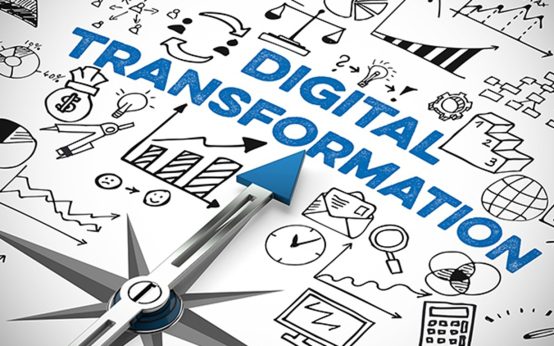Workplace dynamics are evolving at an extraordinary rate, primarily driven by the rise of digital transformation. As technology rapidly advances, companies are reassessing their strategies, tools, and corporate culture to align with the demands of this digital age. In this piece, we will explore how the workplace is being reshaped by digital transformation and what these changes mean for both employees and businesses.
The Role of Digital Transformation in Shaping the Future
Digital transformation involves integrating digital technologies across all areas of an organization, fundamentally altering how companies operate and deliver value. This transformation is being fueled by technologies such as artificial intelligence (AI), cloud computing, big data, the Internet of Things (IoT), and automation. Here’s a look at how these advancements are redefining work environments:
Remote and Flexible Work Environments
- Remote Work Adoption: The global pandemic served as a catalyst for the widespread adoption of remote work. Tools like video conferencing software, cloud collaboration platforms, and project management systems enable employees to work from virtually any location.
- Flexible Schedules: Employers now offer more flexibility in terms of working hours and locations. This flexibility is becoming a key factor in attracting and retaining top talent.
AI and Automation’s Influence
- Automation of Tasks: Mundane, repetitive tasks are increasingly being automated, freeing up employees to focus on higher-level strategic or creative work.
- AI-Driven Insights: AI tools can analyze large datasets, offering actionable insights that enable smarter business decisions.
Emphasis on Skill Development
- Continuous Learning: With technology changing rapidly, the need for ongoing education is more critical than ever. Companies are investing in upskilling their workforce to remain competitive.
- Collaborative Technologies: Tools like Slack, Microsoft Teams, and Zoom are essential for real-time communication, facilitating smooth collaboration among geographically dispersed teams.
Cybersecurity and Data Protection
- Increased Focus on Security: As businesses digitize more data, the importance of cybersecurity has risen. Organizations must invest in robust security protocols to protect sensitive information.
- Data Privacy Compliance: As privacy regulations like GDPR and CCPA become stricter, companies must ensure they are compliant, safeguarding both customer and employee data.

The Impact on the Workforce
Digital transformation brings both opportunities and challenges for employees:
- Enhanced Flexibility and Balance: More flexibility in work arrangements allows employees to achieve better work-life balance and reduce commuting stress.
- Ongoing Skill Development: Employees are encouraged to continuously develop new skills, enabling them to stay relevant in a rapidly evolving job market.
- Job Roles Evolving, Not Disappearing: While automation may change job functions, it doesn’t necessarily lead to job elimination. Human qualities like creativity and critical thinking remain invaluable.
- Mental Health Concerns: The blurred lines between work and personal life in remote work scenarios can increase the risk of burnout, prompting employers to focus more on mental health support.
Business Benefits and Considerations
Digital transformation offers numerous advantages for businesses:
- Operational Efficiency: Automation and digital tools can significantly cut operational costs, leading to more efficient processes.
- Competitive Edge: Companies that quickly adapt to digital transformation gain an advantage by streamlining services and operations.
- Customer-Centric Innovation: Data analytics and AI allow businesses to better understand customer needs, enabling them to provide personalized offerings.
- Scalability: Cloud technologies make it easier for businesses to scale without heavy infrastructure investments.
- Fostering Innovation: Digital transformation enables organizations to cultivate an innovation-driven culture, encouraging employees to explore new ideas and technologies.
Challenges to Overcome
While the benefits are substantial, digital transformation presents challenges that need to be addressed:
- Cybersecurity Risks: With the rise in digitized information, organizations face increased risks of cyberattacks and must continually improve their cybersecurity measures.
- Digital Inequality: Not all employees have equal access to digital tools, creating potential productivity gaps.
- Blurred Work-Life Boundaries: The shift to remote work can make it difficult to maintain a healthy work-life separation, leading to employee burnout.
- Skill Gaps: Businesses may struggle to find workers with the necessary digital skills as technology continues to advance rapidly.
- Data Privacy Concerns: The complexity of complying with evolving data privacy regulations can be daunting and may expose organizations to legal challenges.
Preparing for the Digital Future
To thrive in the age of digital transformation, both employees and businesses must be proactive in adapting to change:
- Invest in Skills: Employees should prioritize learning new digital skills to stay relevant.
- Foster a Culture of Change: Organizations must promote an environment that embraces innovation and continual adaptation.
- Strengthen Cybersecurity: Businesses must prioritize cybersecurity through both technology investments and employee training.
- Support Employee Well-Being: Companies should provide resources to support employees’ mental health and work-life balance, especially in remote work settings.
- Stay Informed: Both businesses and employees must stay current with the latest technological trends and industry shifts to remain competitive.
Conclusion
Digital transformation is reshaping the future of work, bringing unprecedented levels of flexibility, efficiency, and innovation to the workplace. However, it also presents challenges that must be addressed to fully capitalize on these opportunities. Businesses and employees that embrace this new digital era—through skill development, innovation, and well-being—are likely to thrive in the long term. As the workplace continues to evolve, success will depend on a willingness to adapt and leverage technology for positive growth.



 Top 5 Tools to Enhance Productivity in Remote Teams
Top 5 Tools to Enhance Productivity in Remote Teams  Automation in the Workplace: Employee Perspectives
Automation in the Workplace: Employee Perspectives  Four Ways Digital Transformation is Enhancing Our Work Environment
Four Ways Digital Transformation is Enhancing Our Work Environment  Are Remote Jobs Shaping the Future of Work?
Are Remote Jobs Shaping the Future of Work?  The Influence of Digital Transformation on Workforce Engagement and Efficiency
The Influence of Digital Transformation on Workforce Engagement and Efficiency  The Impact of Digital Transformation on Workforce and Organizational Culture
The Impact of Digital Transformation on Workforce and Organizational Culture